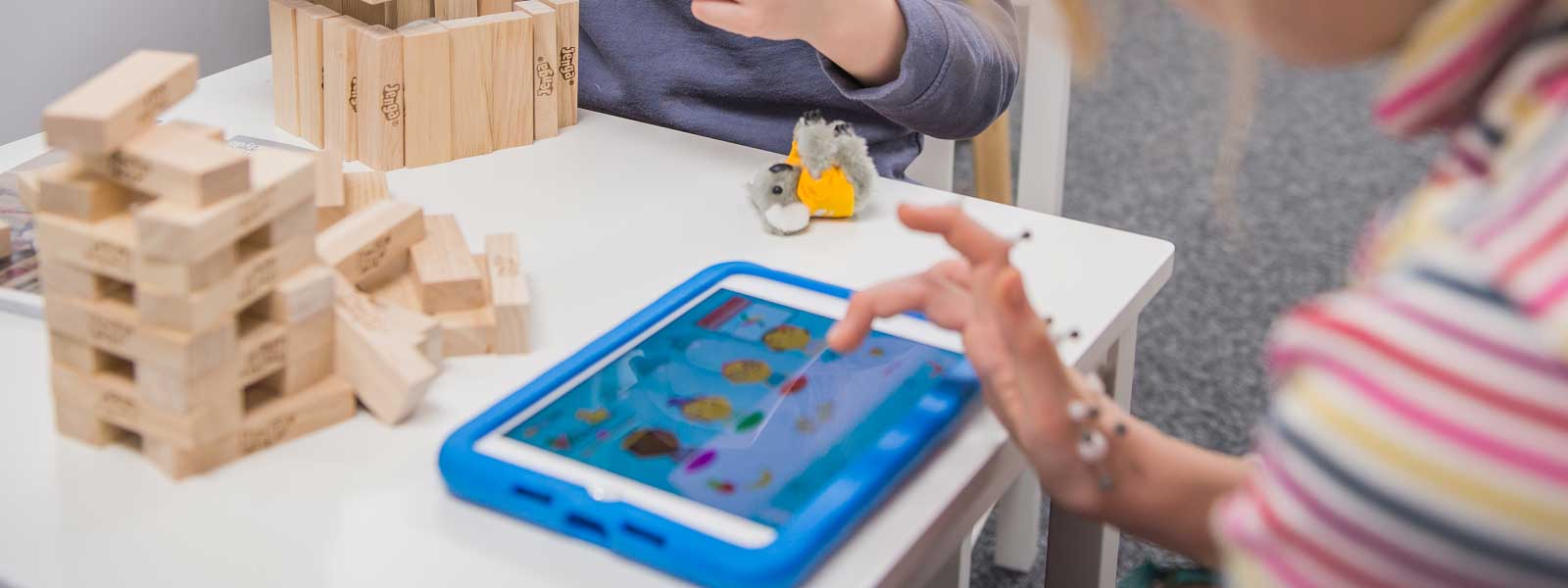We want to create innovative tools and devices that can aid in the early diagnoses of autism, and thus provide experience and support for autistic children and their families. We are working to bridge the gap between technological advancements and their practical application, e.g., Artificial Intelligence, ensuring technological tools are accessible, effective, and tailored to the needs of autistic children.

Laboratory for Innovation in AutismTechnology Development and AI Engineering
Working with partner neuropsychiatrists, we have developed wearable technology and serious, but fun, iPad games for children. Using artificial intelligence (AI), we can analyse the specific movements and motor patterns displayed within their gameplay to identify autism, providing a new route to early detection of neurodivergence for improved clinical and educational support. This has enabled a deeper understanding of the motor disruption in autism for improvements in care, pedagogy, and support.
We conducted a multi-site diagnostic trial of Play.Care, an iPad app that promised to act as an early screening tool for ASD. The app uses advances in consumer technology to make accurate recordings of the way a participant interacts with the games, via the iPad's built-in gyroscope, accelerometer, and touch screen inputs. This was combined with software developer Harimata's machine learning algorithm, to differentiate between the movement patterns of participants with and without ASD. For more details on how the Play.Care app works, please refer to Anzulewicz et al.'s study in Scientific Reports.
This trial was conducted across two sites: in Glasgow and, with the help of our partners at the Gillberg Neuropsychiatry Centre, in Gothenburg, Sweden. We recruited children between the ages of 30 months and 5 years (up to their 6th birthday) who were either typically developing or had a diagnosis of ASD or any other neurodevelopmental disorder. Participants played two fun, age-appropriate games on the iPad. In addition to obtaining their status as typically developing, having ASD, or another neurodevelopmental disorder, we also asked for clinical or parent/guardian observations, and used tools such as ADOS, ADI, SDQ, and ABAS to find out more about the child's abilities, difficulties, and behaviour. Further details can be found in Millar et al.'s phase III diagnostic study.